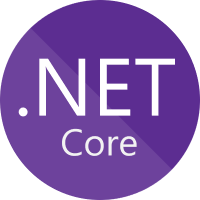02
MayWhy a Tech Stack .NET Developer Should Upskill?
Why Should a .NET Developer Upgrade Their Skills?: An Overview
.NET 8 is a free, cross-platform, and open-source programming framework that enables the development of various web, mobile, and cloud computing applications. Initially, the .NET framework was mainly used to create an application for the Windows environment only. However, with time Microsoft released the new and updated versions of the .NET Framework, which provides us adaptability in different domains like Linux, macOS, etc.
We know that .NET is an ever-evolving framework. Hence, the .NET technocrats must keep themselves up-to-date with the changing trends. In this .NET tutorial, we will see the reasons for upskilling a .NET Developer.
Who is a .NET Developer?
A .NET developer specializes in using the Microsoft .NET framework to build, deploy, and maintain software applications. The following are some of the job responsibilities of a .NET developer:
- Building user interfaces
- Troubleshooting software prototypes
- Providing technical support to users
- Developing programs for .NET applications
- Creating procedures for running the applications
For a detailed understanding, do consider:
- .NET Developer Training With Certification
- .NET Solution Architect Certification Training
- Full-Stack .NET Developer Certification Training
- Advanced Full-Stack .NET Developer Certification Training
Read More - .Net Interview Questions For Freshers
Upskilling of a .NET Developer
As mentioned above, .NET is an ever-evolving framework. Therefore, let us now get into the details of the causes that motivate a .NET developer to enhance his skill profile
1. Stay Updated with Technology
The technology landscape is constantly evolving, and staying current with the latest updates in the .NET ecosystem ensures that developers are aware of new features, tools, and best practices. For this attend conferences, seminars, and community programs where such developers share their experiences and opinions.
2. Adopt New Frameworks and Libraries
Upskilling allows developers to explore and adopt new frameworks and libraries within the .NET ecosystem. For example, transitioning to ASP.NET Core from traditional ASP.NET or learning Blazor for modern web development.
Read More: What's new in ASP.NET Core 8 - Features, Optimizations, and Benefits
3. Embracing Cloud Technologies
Today, cloud computing is at a great hype. Upskilling in cloud platforms like Microsoft Azure can enhance a developer's ability to build scalable, distributed, and cloud-native applications. You need to select a cloud platform that aligns with your project requirements and preferences. Microsoft Azure is a popular choice for .NET developers, providing a comprehensive set of services and seamless integration with the .NET framework.
ScholarHat offers the following certification programs to get a hold of Azure cloud technology
- Azure Certification Training
- Azure Developer Certification (Az-204) Training
- Azure Solution Architect Certification Training
- Microsoft Azure Cloud Architect
4. Cross-Platform Development
The ability to develop cross-platform applications is crucial in today's diverse technology landscape. Upskilling in technologies like Xamarin or MAUI allows .NET developers to create applications that run on various platforms.
5. Microservices and Containers
Microservices architecture and containerization (e.g., Docker) are gaining popularity. Upskilling in areas such as building microservices and deploying applications in containers is valuable for modern application development.
ScholarHat offers the following two programs to learn Microservices:
6. DevOps Practices
DevOps practices aim to streamline collaboration between development and operations teams, automate processes, and deliver high-quality software faster. Learning tools like Azure DevOps enhances a developer's skill set. DevOps practices for .NET developers include Version Control, Continuous Integration (CI), Automated Builds, Automated Testing, Code Quality Analysis, Package Management, etc.
Learn More:
7. Machine Learning and AI
Integrating machine learning and artificial intelligence into applications is a growing trend. Upskilling in areas like ML.NET or incorporating AI services from Azure can open new possibilities for application development.
Learn More:
8. Cross-Functional Skills
Broadening skills beyond coding, such as learning about user experience (UX) design, product management, or agile methodologies, can make a developer more well-rounded and effective in multidisciplinary teams.
9. Enhance Soft Skills
Soft skills, such as communication, teamwork, and problem-solving, are crucial for career growth. Upskilling in these areas improves a developer's ability to collaborate effectively and lead projects.
10. Community Involvement
Engaging with the developer community, attending conferences, participating in forums, and contributing to open-source projects are excellent ways to upskill. Networking with peers and experts can provide valuable insights and learning opportunities.
Read More:
- What is a .NET Developer? Skills to Become a .NET Developer
- .NET8 Developer Roadmap for 2025
- What's new in .NET 8? Discover ALL .NET 8 Features
- What is the difference between .NET 7 and 8?
Summary
Upskilling enhances a developer's marketability and opens doors for career advancement. It can lead to opportunities for leadership roles, specialized positions, or entrepreneurship. Today, there are various methods to learn and grow. The only thing is to choose the right path and for this, ScholarHat is always there to help you.







